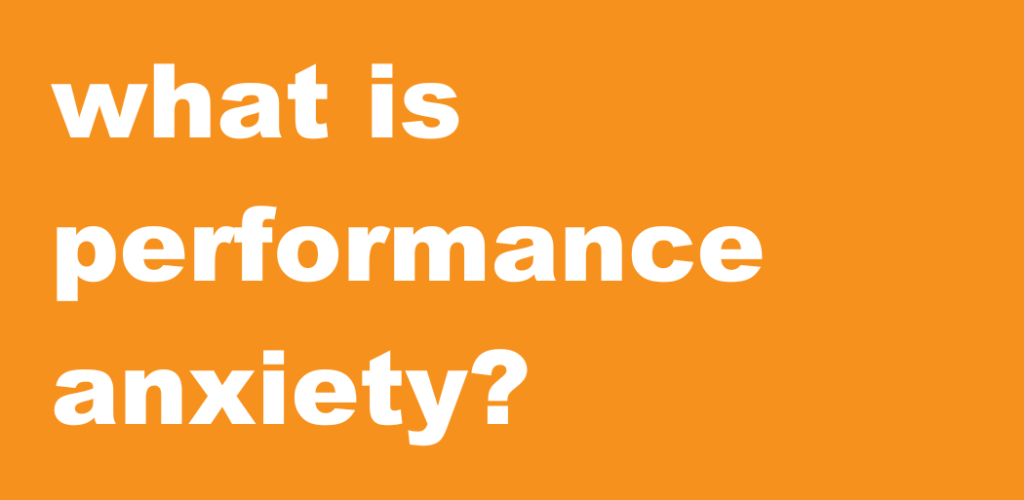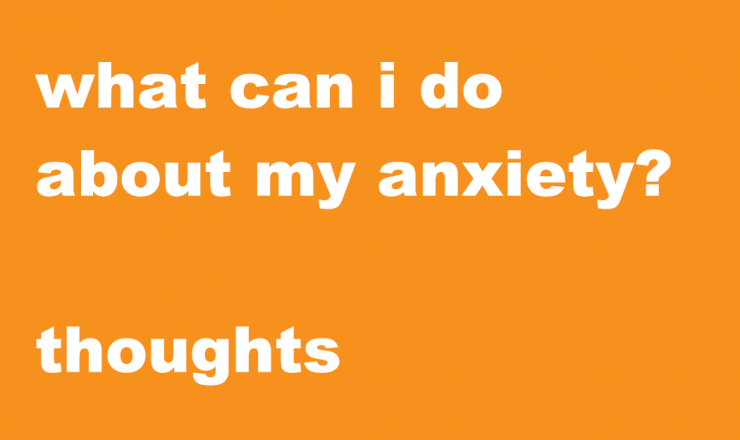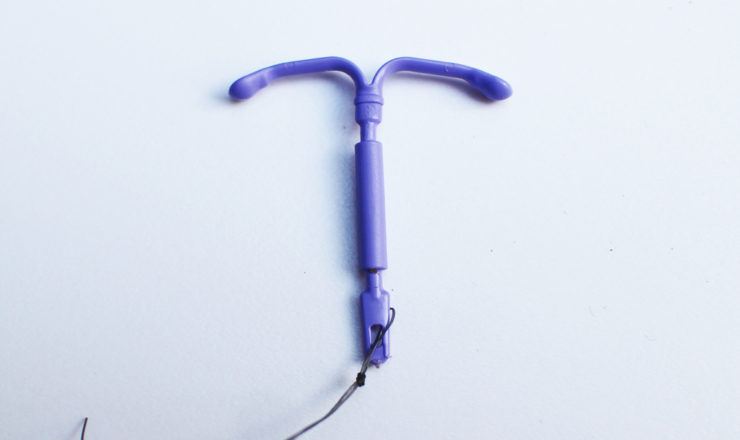What is Performance Anxiety?
During sex, performance anxiety is the feeling of worry, panic, or distress around specific sex acts that often prevents the act from taking place either by someone being unable to become erect if they have a penis, or by someone being unable to relax or get “wet” if they have a vagina (though not everyone does get wet even if they are relaxed and excited). Sometimes the causes of performance anxiety are related to stress involving the act itself: will your partner enjoy the sex you’re having? Will there be pain? Will your partner feel attracted to you? Will you and your partner both orgasm? Other times performance anxiety is related to stress happening outside the bedroom, like relationship issues, personal insecurities, or mental health challenges.
What can performance anxiety look like?
A little bit of nervousness and excitement before sex is totally normal, but if that nervousness turns to anxiety and leads to spiralling in a way that takes over the level of fun you’re having, then we call it performance anxiety. While there aren’t always physical tells like facial expressions or a physiological response like a lack of an erection, there are some things to look out for like physical tension, short and shallow breathing, lots of self-doubt and negative self-talk and a general uncertainty around performing sexually.
Two of the more common physiological symptoms that do occur are erectile dysfunction (the inability to get hard) among people with penises, and conditions like vaginismus (an involuntary tightening of the vaginal muscles) which can make penetration extremely painful. While these can both feel very alarming especially in the moment, they can be treated with physical or talk therapy, medication, and other strategies like mindfulness practices. If you’re concerned you might have experienced these symptoms, or are struggling with them now, you can check in with your family doctor or another medical professional to see what options might work for you. We’ll also include a couple of helpful links with more info about vaginismus and erectile dysfunction:
How can you support someone with performance anxiety?
When you’re with someone who is experiencing performance anxiety, the best way to help is to validate their feelings, take a step back if needed, and don’t add pressure by expressing disappointment or judgement. Adding additional stress to the situation may make the performance anxiety worse and they may find it even more difficult to relax the next time it happens. Remember that if you’re with someone who is expressing obvious discomfort, don’t push them to continue! Consent requires both parties to participate.
Tips for Managing Performance Anxiety
Remember performance anxiety isn’t just about someone not experiencing pleasure during sex, what feels good for one person might not feel good for another and it can take a lot of patience and communication to figure that out. Performance anxiety is a more of a mental block that affects someone’s ability to enjoy sex and can take some figuring out to treat.
Here are some ideas that might help you avoid to avoid getting to that point before having sex:
- Practice self-care: if you’re at your best going into a sexual experience (well rested, you’ve eaten, taken time to relax) you’ll be better equipped to handle any possible moments of anxiousness that come up during sex
- Manage your expectations: not every sexual encounter is going to be mind-blowingly pleasurable, it might feel awkward or uncomfortable sometimes, especially if you’re new to sex or are with a new partner. This is normal! If something awkward happens that feels like it might throw off the mood, just try and roll with it, laugh it off, and remember that sex can be funny, awkward, and still good!
- Check in with your partner: communication plays a HUGE factor in how fun or good sex can be. Having a conversation about turn-ons, turn-offs, and boundaries can reduce the chances of running into a snag that might stress you out.
- Have supplies on hand that could help: things like lube, condoms, and sex toys can be helpful to have on hand so you’re not scrambling for them during sex. They can also help make sex feel safer, more comfortable, and more fun!
Before sex is a great time to unpack some of your feelings about sex and sexuality. It may be useful to journal or talk to someone you trust if you are feeling anxiety about sex and your body, so that you can feel more confident and have a clearer sense of what you do and don’t like. Thinking about what sex acts you may or may not be comfortable with and what sort of external ideas and messages you might have absorbed about sex through media or people you know can help you determine what safe, fun, and comfortable sex looks like for you and can help you better communicate this to others.
Here are some tips that might be helpful on avoiding anxiety during sex:
- Check-in: ask things like: “do you like this?”, “what feels good?”
- Advocate for yourself: sometimes when we’re anxious we forget this should be fun and enjoyable for us too! Tell your partner what you like with your words or gently move their body in a way that is more pleasurable for you.
- Take breaks: there is no need to “push through” if you are uncomfortable, taking a break can allow everyone to reassess and figure out what’s working and what’s causing anxiety.
It’s normal to struggle with anxiety around sex, so don’t shame yourself for feeling nervous or apprehensive. We get told a lot of not so positive messages about sex and sexuality, so it’s totally understandable that you might bring that into your sexual relationships. How we feel about sex can be affected by how we feel about our bodies, our identities, the people we’re with, and a whole bunch of other social factors we might not even be actively thinking about. If you find yourself struggling with feelings of anxiety that feel too big to handle on your own, reach out to a counsellor or someone you trust to talk through these feelings. You deserve to have a positive and fulfilling relationship to your body and to your sexuality!
Further Reading
- Sex: What’s the Big Deal? – Teen Health Source
- Am I Ready for Sex? – Teen Health Source
- Making Sex Feel Good – Teen Health Source
If you have questions about this topic, feel free to contact one of our peer educators. [Link]
Last edited: July 2023.






